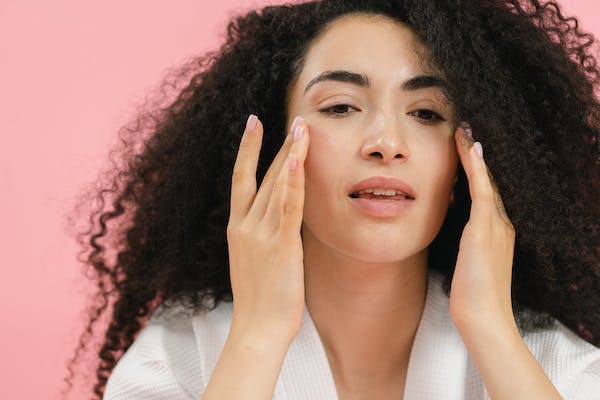When it comes to beauty products for sensitive skin, finding the right ones can be a challenge. With so many products on the market, it can be difficult to choose the right one for your skin. Face beauty for sensitive skin is an important part of maintaining healthy and glowing skin, and it’s important to know what products to use and how to use them.
Face beauty for sensitive skin is all about finding the right balance of gentle, non-irritating ingredients that can help protect and nourish skin without causing any kind of reaction or irritation.
There are a variety of face beauty products that are specifically designed for sensitive skin, such as cleansers, masks, moisturizers, and serums, that can help to keep skin healthy and glowing.
Additionally, it’s important to choose the right ingredients and avoid anything that could be too harsh or irritating for sensitive skin. With the right face beauty products and the right knowledge, you can maintain beautiful, healthy, and glowing skin.

Brief about “Sensitive Skin”
Sensitive skin is a term used to describe a skin type that is easily irritated and prone to redness, stinging, itching, and other reactions from certain products or environmental factors. People with sensitive skin can find it difficult to find products that are suitable for their skin type.
When it comes to face beauty for sensitive skin, it is important to use gentle, hypoallergenic, and non-comedogenic products that are specifically formulated for sensitive skin. Additionally, it is important to avoid harsh cleansers and exfoliators, as well as products with strong fragrances, alcohol, and dyes.
Challenges Faced by People with Sensitive Skin
Causes of Sensitive Skin
Sensitive skin is often caused by environmental factors such as pollution, extreme temperatures, and harsh chemicals. It can also be caused by allergies, hormonal imbalances, and underlying skin conditions.
Signs and Symptoms
People with sensitive skin may experience symptoms such as redness, itching, burning, stinging, dryness, and tightness. They may also experience breakouts and rashes.
Challenges Faced People
Sensitive skin faces many challenges due to its condition. These include difficulty finding suitable skin care products, having to avoid certain activities and environments, and dealing with the emotional impact of having sensitive skin.
Skin Care Products
Finding suitable skin care products can be a challenge for people with sensitive skin. Many products contain harsh chemicals or fragrances that can irritate sensitive skin. It is important to look for products that are specifically designed for sensitive skin and that are free of irritants.
Avoiding Certain Activities
People with sensitive skin often have to avoid activities that can irritate their skin, such as swimming in chlorinated pools or using hot tubs. Exposure to extreme temperatures, such as heat and cold, can also irritate sensitive skin.
Emotional Impact
Having sensitive skin can have an emotional impact on people. They may feel self-conscious or embarrassed about their skin condition and try to hide it. This can lead to feelings of depression, anxiety, and low self-esteem.
Conclusion
People with sensitive skin face many challenges due to their condition. These include difficulty finding suitable skin care products, having to avoid certain activities and environments, and dealing with the emotional impact of having sensitive skin.
It is important to find skin care products that are specifically designed for sensitive skin and to take steps to protect the skin from irritants.
Tips for Face Beauty for Sensitive Skin
Here are the tips for face beauty for sensitive skin
A. Avoid Harsh Skincare Products
Sensitive skin is easily irritated and can react to many skincare products. It is best to use natural, gentle products, free from harsh chemicals.
B. Use Gentle Cleansers
Opt for mild, fragrance-free cleansers for sensitive skin. Cleansers with natural ingredients, like aloe vera, oatmeal, and honey, are best.
C. Moisturize Often
Moisturizing is key to keeping your skin hydrated and healthy. Look for moisturizers that are hypoallergenic and free of fragrances and dyes.
D. Stay Hydrated
Drinking plenty of water helps keep your skin hydrated and healthy. Aim to drink at least eight glasses of water a day.
E. Use Sunscreen
Sunscreen is a must for sensitive skin. Look for sunscreens that are free of fragrances, dyes, and other irritating ingredients.
F. Treatments
If you have concerns such as acne, eczema, or rosacea, talk to your dermatologist about treatments that may be suitable for your skin type. Your dermatologist may also be able to recommend products that are specifically designed for sensitive skin.
G. Avoid Irritants
Avoid harsh products that can irritate the skin. Try to stick to natural, gentle ingredients. Also avoid excessive heat, cold, and wind, as they can be irritating to sensitive skin.
H. Moisturizing
Sensitive skin needs extra hydration. Choose a gentle moisturizer that is fragrance-free and contains fewer ingredients. Avoid products containing alcohol, as they can be drying and irritating.
I. Cleansing
When it comes to face beauty for sensitive skin, cleansing is the most important step. Use a gentle, non-drying cleanser and lukewarm water to avoid irritation. Avoid harsh scrubs and exfoliators, which can cause further irritation.
Conclusion
Overall, taking care of sensitive skin is not an easy task. However, with the right tips and strategies, you can maintain beautiful, healthy skin. To begin, it is important to use the right cleansers and moisturizers that are specifically formulated for sensitive skin.
Additionally, you should always wear sunscreen when heading out and avoid harsh chemicals in your skincare routine.
Finally, make sure you get enough sleep and drink plenty of water to keep your skin hydrated. With these tips, you can keep your sensitive skin looking and feeling beautiful and healthy.

Summary of Causes and Tips for Face Beauty for Sensitive Skin
Face beauty for Sensitive skin can be challenging to take care of and keep looking beautiful. To keep your sensitive skin looking its best, it’s important to understand the causes and take the necessary steps to help keep it healthy.
Common causes of sensitive skin include using harsh cleansers, overexposure to the sun, environmental irritants such as wind and cold, and genetics.
To keep your sensitive skin looking beautiful, it’s important to use gentle cleansers, moisturizers, and sunscreen. Use lukewarm water to wash your face, avoiding very hot or cold water which can irritate the skin.
Avoid products with harsh fragrances and chemical ingredients, as these can cause irritation. Look for products that are labelled for sensitive skin and are free of alcohol, fragrance, and other harsh ingredients.
It’s also important to take care of your skin from the inside out. Eating a balanced diet, exercising, and drinking plenty of water can all help to keep your skin healthy and glowing. In addition, be sure to get enough sleep and manage stress levels to help keep your skin looking and feeling its best.
By understanding the causes of sensitive skin and taking the necessary steps to care for it, you can keep your face looking beautiful and healthy.
Importance of Listening to Your Skin and Consulting a Dermatologist
- Listening to your skin and consulting a dermatologist is one of the most important steps in having healthy skin.
- Your skin is your body’s largest organ.
- It’s constantly expose to environmental factors, such as the sun, air pollution, and harsh weather.
- By listening to your skin and consulting a dermatologist, you can better understand the changes happening to your skin and how to manage them.
- A dermatologist can help diagnose and treat a variety of skin conditions and can provide you with personalized care and advice.
- They can help you determine the best products for your skin type and recommend lifestyle changes to improve your skin health.
- Additionally, a dermatologist can provide treatments for skin problems that over-the-counter products cannot address, such as acne, eczema, and psoriasis.
- Furthermore, listening to your skin can help you identify any skin changes early, which can help prevent more serious skin conditions from developing.
- By being mindful of any changes in your skin, such as changes in colour or texture, you can take the necessary steps to address the issue.
- Overall, listening to your skin and consulting a dermatologist is essential for maintaining healthy skin.
- A dermatologist can help you better understand your skin and provide you with the treatments and advice you need to keep your skin healthy.
FAQs
A1: Gentle, hypoallergenic products are best.
A2: Fragrances, dyes, and harsh chemicals.
A3: Natural products are often a better choice for sensitive skin.
A4: A mild, non-foaming cleanser is best.
A5: Twice daily is recommended for sensitive skin.
A6: Yes, a light, non-comedogenic moisturizer is best.
